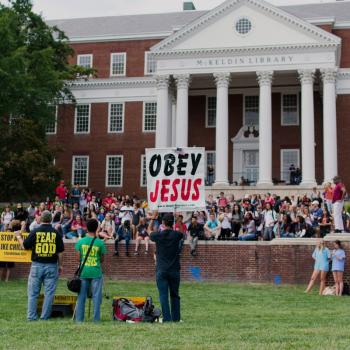Micah Mattix in a review of Arthur Krystal’s new book on the Great Books writes this:
“Great writers,” however, by which Krystal means literary ones, “hit us over the head because they present characters whose imaginary lives have real consequences (at least while we’re reading about them), and because they see the world in much the way we do: complicated by surface and subterranean feelings, by ambiguity and misapprehension, and by the misalliance of consciousness and perception.” In “A Sad Road to Everything,” he writes that literature asks: “What is the meaning of existence? What are we or the universe doing here?”
Fair enough. The difference between great and good literature is one of truth, complexity, nuance, and style. Is this also the difference between literary and genre fiction? Perhaps, but only if we blindly recast genre fiction as pulp fiction and, in turn, ignore every piece of dry prose published by Northeastern trade presses that sells itself as “literary.” Krystal notes in passing that some fiction that goes by the name “literary” isn’t, but he doesn’t explain why, give examples, or offer even a brief analysis of the failures of literary fiction.
Put another way, Krystal is absolutely right that there is a difference between great and good works and that this difference has something to do with “a deeper understanding of the world, of history, of human relationships” and “of literature itself.”
Does the Bible measure up? Sacred texts have always had trouble finding a place in the literary canon, partly because they are so — well — obsessed with God. Put another way, the Bible doesn’t ask what the meaning of life is as much as it answers how I am right with God (of course, interpretations of the answer vary).
The difference between the Good Book and the Great Books may be relevant to a discussion that John Fea opened recently about the decline of history majors which prompted further reflections about the viability of the humanities. Fea’s worthwhile point comes framed in the Trump-obsession that now afflicts the world:
Enrollments in humanities fields — history, philosophy, literature, theology — at evangelical colleges have experienced a precipitous decline over the last decade. Yet these are disciplines that teach evangelical young people how to live together with their deepest differences, reflect on the purpose of life, think critically about the world, cultivate moral courage, make evidence-based arguments, and recognize that life does not always fit easily into binary categories.
These are the subjects that raise the kinds of question that go to the heart of a Christian education. They help us see the world from the perspective of others and teach us humility as we ponder our place in the expanse of human history. They help us to understand the common good and to serve it. They make us informed citizens.
Unfortunately, today we are training evangelicals for our capitalist economy. We are not training them for life in our democracy.
Chris Gerhz who also perceives a “crisis of the humanities” at evangelical colleges runs some numbers to verify Fea’s claim.
I was surprised to see John argue that humanities “teach us humility as we ponder our place in the expanse of history.” Ideally, they may. But for about 50 years the elite liberal arts colleges (think Oberlin and Lena Dunham) have not put much of a dent in the graduates who depart if not thinking they are God’s gift to the world have little sense of indebtedness to the generations who preceded them. If anything would teach us humility, it would be the record of Adam’s, the Israelites’, and early church’s failings in comparison to the all-surpassing goodness, wisdom, and saving work of Christ. In other words, the Bible should be the Greatest Book for teaching humility and even the meaning of existence.
Shouldn’t the true measure of evangelical colleges be how well they teach the Bible? Don’t get me wrong. The current state of American Christianity and its exaltation of the United States does not lead me to think that Bible believers actually believe the Bible (which says “put no hope in princes” right?). Human pride may be too substantial for even the Bible to conquer without the miraculous and powerful work of the Holy Spirit.
In which case, should Bible and theology have something to say about what makes books great, the relative worth of the humanities, and the mission of evangelical liberal arts colleges?
Revival anyone?












